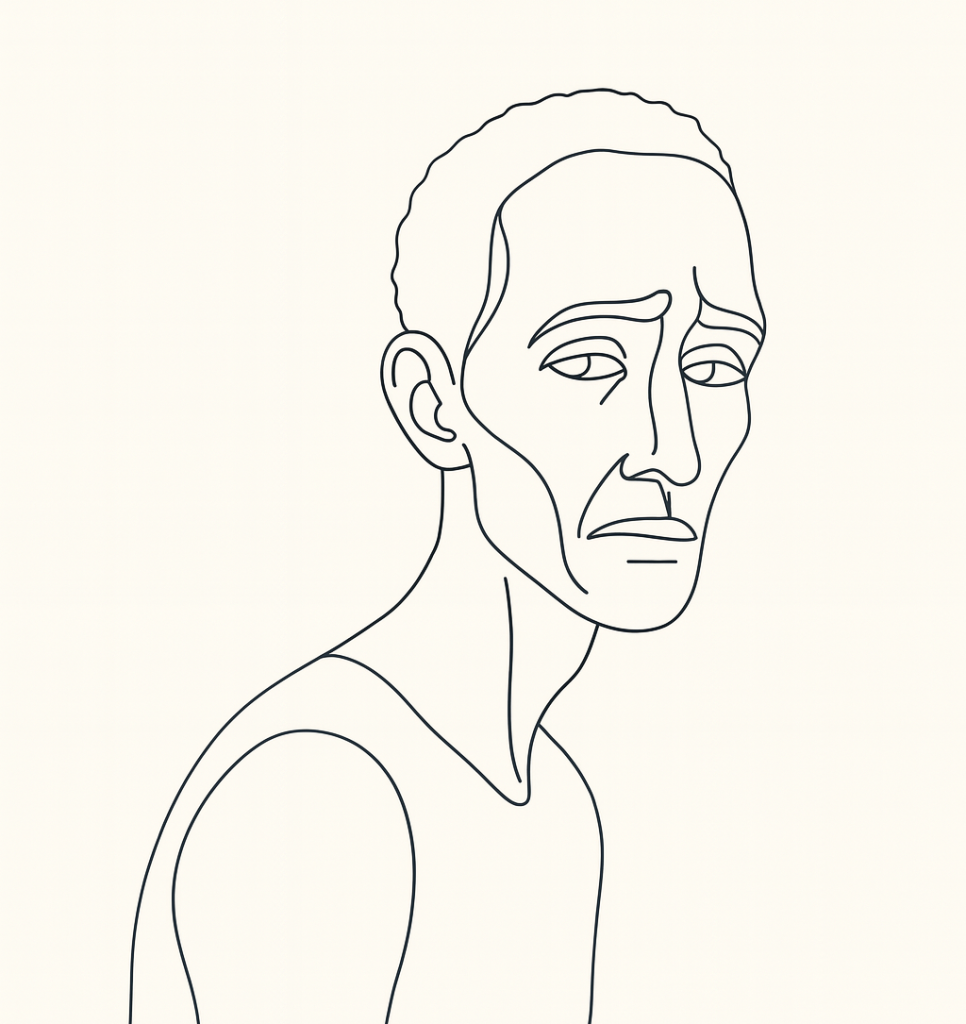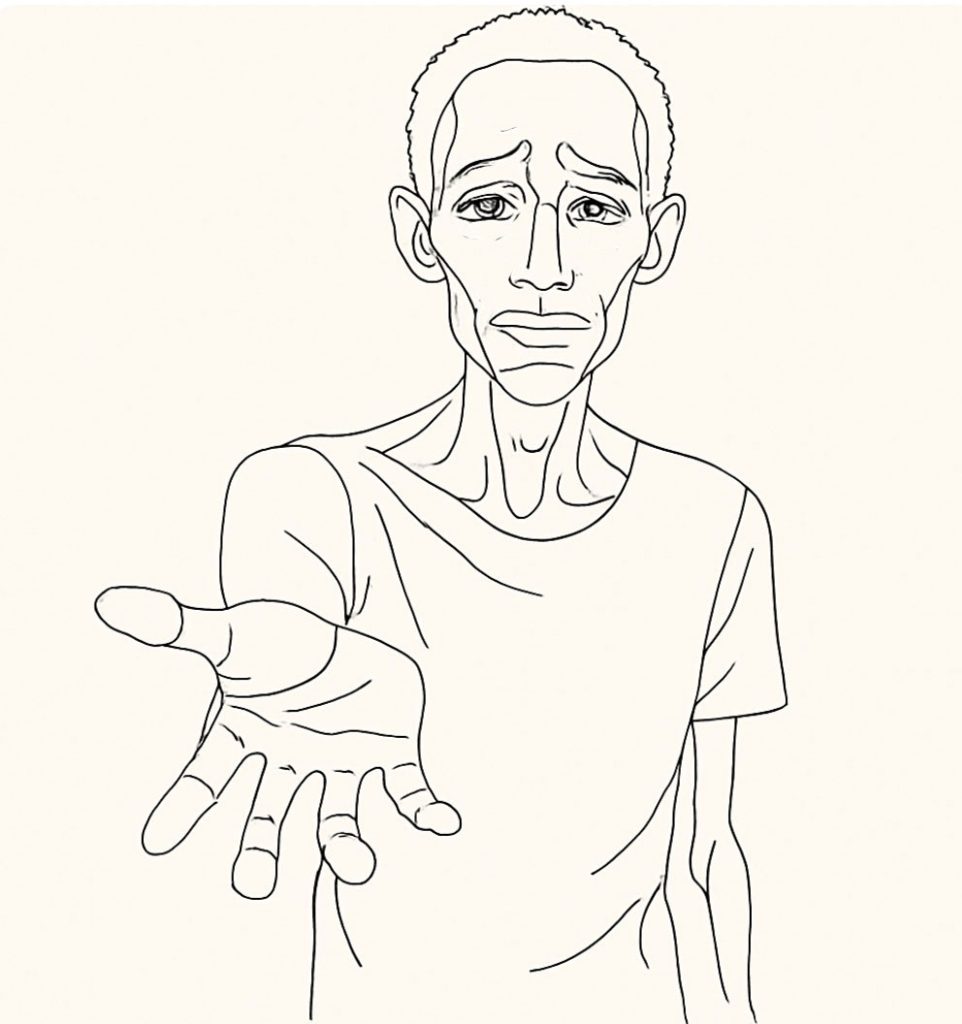Sully was attacked because he’s gay. Police in Nigeria arrested him, not the attackers.
Mike Daemon is the pseudonym of the founder and presenter…
Donors can set Sully free, sparing him from a prison sentence of up to 14 years.
Donations are urgently needed to free 12 prisoners, including Sully.

By Mike Daemon
In Nigeria, where queerness is met with criminal suspicion and social rejection, Sully’s story is one of survival against impossible odds — and a system determined to crush him.
Sully was 24 when police arrested him in Port Harcourt, Rivers State, Nigeria, in December 2024. Today he remains locked in a prison cell, awaiting trial — and clinging to hope.
Born in the southern region of Nigeria, Sully was raised by his now 72-year-old grandmother after his mother died giving birth to him. His father, absent since the pregnancy, had abandoned the family for another woman — a decision fueled by ethnic tensions that condemn marriage across tribal lines. That rejection marked the first of many Sully would endure in a life defined by abandonment and resilience.
Growing up, Sully’s effeminate mannerisms made him the target of ridicule and disdain within his extended family.
“I was always the different one,” he would later say. “Even as a child, I knew they hated me for how I acted.”
His grandmother remained his only refuge — a steadfast presence who protected and encouraged him in the face of cruelty.
At 16, Sully received a scholarship to finish secondary school. It was a brief ray of light — one that flickered out too soon. Without money to pursue higher education, his dreams were put on hold.
Things began to shift when an aunt offered to take him to the city of Port Harcourt, promising him a better life in exchange for help with child care. There, Sully discovered his passion — and skill — for fashion. His aunt’s husband was a tailor working from home, and Sully learned by observing, then assisting. Within 18 months, he could sew garments independently.
Donations are urgently needed
But life in the new home was far from safe. His aunt, like others before her, tormented him over his feminine manner. The emotional toll was crushing. Eventually, through a chance encounter with a customer at the tailoring shop who admired his skill, Sully secured a new job — one that came with accommodation and the promise of independence.
At this point, just when his life seemed about to stabilize, everything fell apart.
Sully met someone on Facebook. They chatted for weeks, exchanging messages and photos that grew more intimate. When the stranger invited him over, Sully agreed. But the meeting was a trap.
Ambushed and violently assaulted by several assailants, Sully was stripped naked and beaten. His attackers filmed him and forced him to “confess” on camera. After he lost consciousness, neighbors called the police — not to report the assault, but to hand Sully over.
He was taken to a hospital, and later was questioned by police. But instead of investigating the attack, they arrested him.

To regain his freedom, Nigerian police allegedly demanded ₦900,000 (about US $590) — money Sully didn’t have. With the video footage and leaked photos, prosecutors charged him under Nigeria’s Criminal Code Act, which criminalizes same-sex relations with penalties ranging from three to 14 years in prison.
In a system stacked against him, Sully’s case might have disappeared — another forgotten victim of Nigeria’s war on queer lives. But then came a sliver of hope.
Project Not Alone 2025, this site’s legal aid initiative for imprisoned LGBTIQ+ Nigerians and Cameroonians, took on his case. A pro bono lawyer has committed to seeing it through in hopes that readers’ donations will be sufficient to pay whatever fines are imposed.
But the wheels of justice turn slowly — if at all — and Sully remains in prison, where he has been since December. His health is deteriorating. He has received just two food deliveries this year through Project Not Alone. The rest, he must survive without.
In a letter passed on through a volunteer, Sully shared his fears. “This is just too much for me,” he wrote. “I don’t know what will happen next. But I know that I did not create myself like this. And God knows why everything is like this for me.”
His words are a quiet act of resistance — a belief in his own humanity in a place designed to erase it.
PLEASE DONATE
Project Not Alone 2025 aims to set free 12 innocent imprisoned victims of homophobia in Nigeria and Cameroon. It is a program of the non-profit St. Paul’s Foundation for International Reconciliation and its Erasing 76 Crimes news site. U.S. tax-deductible donations to Project Not Alone 2025 may be made via:





